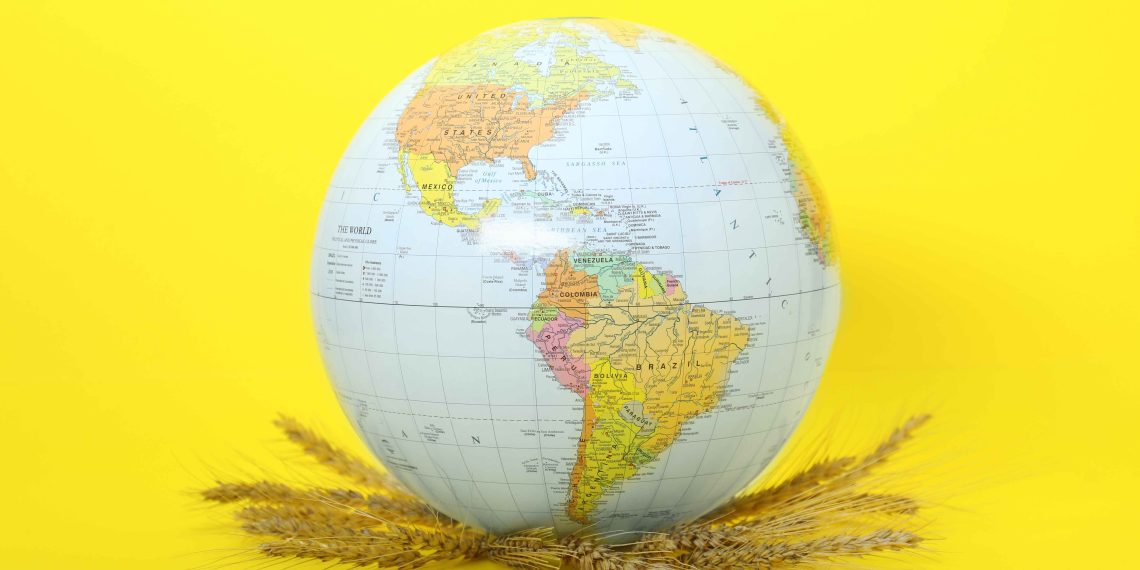With BRICS expanding its membership, the coalition is poised to take on a greater role in shaping the future of global development and raising the voice of the Global South in international platforms. Following its recent expansion, BRICS now represents over 46% of the world’s population and 35% of global economic output, surpassing the G7’s share, which covers only 10% of the global population and 30% of GDP.
Development Over Ideology
While some Western alliances are driven by ideological interests, BRICS prioritizes the development and security of its people, aiming to increase the representation of the Global South in global decision-making processes. The bloc’s gradual expansion makes it increasingly attractive to countries from the Global South, enhancing its influence in global governance.
Rising Global Food Crisis
The global food crisis has intensified in recent years due to various factors such as the COVID-19 pandemic, conflicts, and climate change. Rising trade protectionism and the weaponization of food-related issues have further exacerbated food insecurity, with developed nations imposing sanctions that have significantly affected the agricultural sector.
According to the 2023 Global Trade Alert, state interventions in trade have surged, and the agriculture sector has been among the hardest hit, with sanctions impacting 80% of global industries. Given these challenges, BRICS nations can play a key role in alleviating the global food crisis by breaking down barriers in food trade, reforming agricultural governance, and stabilizing supply chains and food prices.
1. Strong Agricultural Production and Trade Within BRICS
BRICS countries, which account for 42% of global food production and 40% of consumption, have a significant capacity to enhance food security within the bloc through agricultural trade. Investments in agricultural infrastructure, technological exchange, and open trade can strengthen BRICS’ agricultural sectors and ensure food security for its members. An example of this was during the U.S.-China trade war, when Brazil’s soybean exports to China surged, reducing U.S. dominance in the global soybean market.
2. Expanding Agricultural Export Capacity
BRICS’ growing agricultural export capacity positions it as a vital player in global food security. The bloc, along with the G7, contributes to half of the world’s agricultural exports. Between 2011 and 2021, the share of global food exports from the G7 and the European Union decreased from 30% to 28%, while BRICS’ share increased. With a significant role in exporting staple crops, such as rice (39% of global exports), wheat (33%), and corn (23%), BRICS nations can help reduce food insecurity, especially in the Global South.
3. Strengthening Agricultural Cooperation Initiatives
BRICS‘ agricultural collaboration dates back to the launch of the “Action Plan 2017-2020 for Agricultural Cooperation of BRICS Countries,” which was later extended to 2024. The plan focuses on improving water resource efficiency in agriculture, eradicating poverty and hunger, and sharing best practices. Through these initiatives, BRICS aims to ensure food security within the bloc and contribute to global efforts to combat hunger.
4. China’s Pivotal Role in Food Security Efforts
As the largest BRICS economy and a major agricultural powerhouse, China plays a crucial role in the bloc’s food security strategy. With 70% of BRICS’ GDP and the world’s largest food production capacity, China’s advanced farming practices and agricultural infrastructure support efforts to stabilize global food prices and boost food output in Global South nations. China’s high demand for agricultural imports and its stable food production make it a key player in maintaining a resilient global food supply.
Conclusion
As BRICS nations and other Global South countries secure their own food supply, they will collectively strengthen the global food governance framework. By engaging in practical cooperation on infrastructure, technology, and policy, BRICS can stabilize global food prices and break the monopoly in international food markets, making a substantial contribution to global food security.
As leading regional powers, BRICS nations not only represent their respective countries but also have significant influence over their regions. By addressing geopolitical challenges and refining its mechanisms through dialogue and collaboration, BRICS can help reshape the global order and bolster global food security.





















